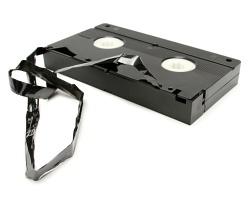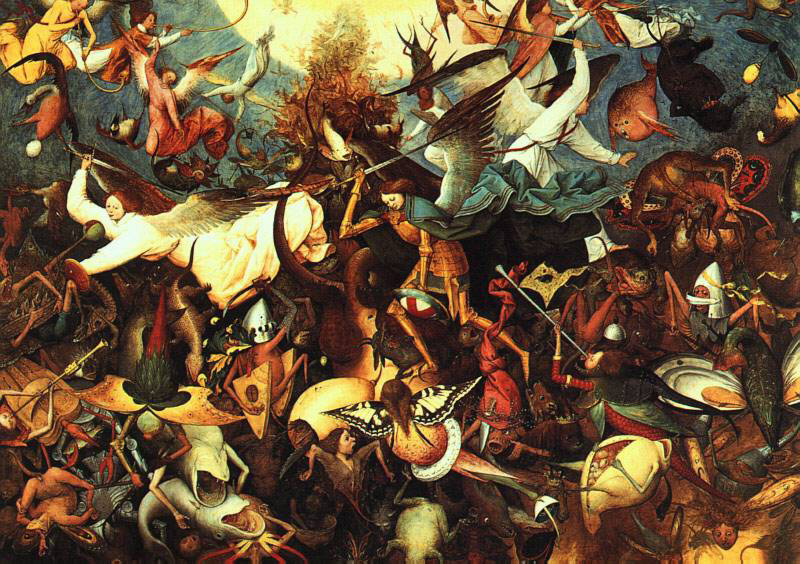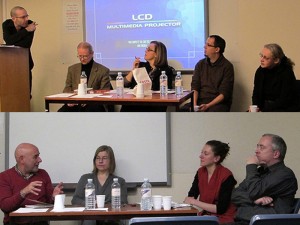Popular Matters at the Whitechapel Salon
%201991.jpg)
The Whitechapel Salon: Matter Matters I: Popular Matters
Thursday 13th May, 7pm
Study Studio, Whitechapel Gallery, London E1 7QX
The Whitechapel Salon is back! Spanning art, architecture, performance and sustainability, the forthcoming year-long series of four Salon discussions focus on the matter of ‘matter’ – its nature, substance and the productive forces that govern it. Chris Horrocks, Principal Lecturer, Kingston University and Julian Stallabrass, Reader, Courtauld Institute of Art consider Popular Matters including mass culture, vernacular photography, Web 2.0 and user-generated content.
Book now to avoid disappointment! Book your ticket here.
Tickets: £8/£6 (includes free glass of wine)
http://www.whitechapelgallery.org
Tagged as art, matter, pop, technology
From Intermodernism to Science Fiction

Wednesday 14th April, 1.15-2.30pm
Room 106, University of Westminster, 32-38 Wells Street, W1T 3UW
Nick Hubble (Brunel University)
‘Naomi Mitchison: From Intermodernism to Science Fiction (via Mass-Observation)’
From her 1920s novels, influenced by Lawrence but aimed at the audience of Wells, to her subsequent deployment of modernist techniques for political ends, Naomi Mitchison may be considered a key intermodern writer. Her literary output during the 1930s – The Corn King and the Spring Queen (1931), Beyond This Limit (1934; a feminist fantasy illustrated by Wyndham Lewis), We Have Been Warned (1935), The Moral Basis of Politics (1938) and The Blood of the Martyrs (1939) – is comparable with Orwell’s. Her relentless pursuit of the ‘just society’, free from gender-based and sexual repression, made her a controversial figure even in that controversial decade. And her close literary associates of that decade – including Auden, Aldous Huxley, Olaf Stapledon, Stevie Smith, Wyndham Lewis and Walter Greenwood – suggest different ways of thinking about literary networks and cultural history in general. She was also a friend and supporter of Tom Harrisson and Mass-Observation, for whom she kept a wartime diary. Nick Hubble’s paper analyses this intermodern work and investigates how it relates to Memoirs of a Spacewoman (1962), a forerunner of the 1970s feminist utopian science fiction of writers such as Ursula Le Guin, Marge Piercy and Joanna Russ.
Free to all.
Tagged as feminism, Modernism, science fiction
21st Century London: Rachel Lichtenstein

Thursday 22nd April, 6pm
The Boardroom, University of Westminster, 309 Regent Street, W1B 2UW
In the final event in the 21st Century London series of talks at Westminster Rachel Lichtenstein, author of Brick Lane and (with Iain Sinclair) Rodinsky’s Room, and Visiting Fellow at the IMCC, will be speaking at Regent Street.
For more information, please email Monica Germana at m.germana@westminster.ac.uk. Events are free of charge, but booking is essential: please email Sharon Sinclair at sinclas@wmin.ac.uk to book a place.
PROGRAMME FOR THE 2010 VISUAL CULTURE STUDIES CONFERENCE

To book email info@instituteformodern.co.uk or download the booking form
Date: Thursday 27th May 2010 – Saturday 29th May 2010
Venue: The Old Cinema, University of Westminster, 309 Regent Street, London
Cost: £50/25 concessions, booking essential
Thursday 27th May 2010
12:00 Registration
1:00-2:15 Session 1
W.J.T. Mitchell (English and Art History, University of Chicago)
2:15-4:15 Session 2 Roundtable: Education
Mark Dunhill (School of Art, Central Saint Martins College)
William Cobbing (Wimbledon College of Art)
Joanne Morra (School of Art, Central Saint Martins College)
Adrian Rifkin (Art Writing, Goldsmiths, University of London)
Joy Sleeman (History and Theory of Art, Slade School of Fine Art)
Victoria Walsh (Education and Interpretation, Tate Britain)
4:45-6:30 Session 3
Gary Hall (Media and Performing Arts, Coventry University)
Joanna Zylinska (Media and Communications, Goldsmiths, University of London)
6:30-8:30: Reception
Friday 28th May 2010
10:00-11:15 Session 4
Keith Moxey (Art History and Archaeology, Columbia)
11:15-1:00 Session 5
Divya P. Tolia-Kelly (Geography, Durham University)
David Cunningham (Cultural & Critical Studies, University of Westminster);
1:00-2:00 Lunch (Not provided)
2:00-4:00 Session 6 Roundtable: Design Studies – Visual Studies – Cultural Studies
Glen Adamson (Design/Craft, RCA/V&A)
Sarah Chaplin (Architectural Humanities, Greenwich University)
Elizabeth Guffey (Design, SUNY, Purchase)
Raiford Guins (Digital Cultural Studies, SUNY, Stony Brook)
Guy Julier (Design, Leeds Metropolitan University)
Penny Sparke (Design History, Kingston University)
4:30-5:45 Session 7
Lisa Cartwright (Communication, UC, San Diego)
Saturday 29th May 2010
10:30-11:45 Session 8
Nicholas Mirzoeff (Media, Culture, and Communication, New York University)
11:45-1:30 Session 9
Esther Leslie (Political Aesthetics, Birkbeck, University of London)
Esther Gabara (Romance Studies, and Art, Art History, & Visual Studies, Duke University)
1:30-2:30 Lunch (Not provided)
2:30-4:30 Session 10 Roundtable: The Future Institution: An International Association for Visual Culture Studies?
Michael Ann Holly (The Clark Art Institute, Williamstown)
Jeremy Gilbert (University of East London)
Stephen Melville (Art/Aesthetics/Philosophy, Ohio State University)
Griselda Pollock (Art Histories/Cultural Studies, University of Leeds)
Marquard Smith (Visual Culture Studies, University of Westminster)
4:30 Conference Ends
Organizers: Nicholas Mirzoeff (New York University), Joanne Morra (University of the Arts London), Marquard Smith (University of Westminster, London)
Toby Litt on London

Thursday 11th March, 6pm
The Boardroom, University of Westminster, 309 Regent Street, W1B 2UW
Following a successful first event with urban visionary Iain Sinclair, in the second of a new series of talks at Westminster entitled 21st Century London, exploring the challenges and opportunities the city offers to the contemporary writer, Toby Litt will be speaking at Regent Street. Toby was winner of the 2009 Manchester Fiction Prize, and his many novels include Corpsing (2000), Ghost Story (2004) and Hospital (2007). Future speakers will be Diran Adebayo (March 18) and visiting research fellow at the Institute Rachel Lichtenstein (April 22).
For more information, please email Monica Germana at m.germana@westminster.ac.uk. Events are free of charge, but booking is essential: please email Sharon Sinclair at sinclas@wmin.ac.uk to book a place.
War in Liverpool

Thomson & Craighead will be showing ‘A Short Film about War’ as an installation for the first time at the MyWar exhibition at the Foundation for Art & Creative Technology (FACT) in Liverpool, running from March 12 – May 30 2010. It will appear alongside works by Phil Collins, Renzo Martens, Milica Tomic, Knowbotic Research, Harun Farocki, Sarah Vanagt, Joseph Delappe, Oliver Laric, Dunne & Raby, Harrell Fletcher and SWAMP.
Animate Projects have also commissioned Lisa LeFeuvre to write a contextual essay about the piece, which is available on their website to read and download as a diffusion book alongside a streaming version of the work. Read Lisa’s essay here.
Tagged as art, cinema, thomson, war
Literary haunted houses
Wednesday 10th March, 1.15-2.30pm
Room 106, University of Westminster, 32-38 Wells Street, W1T 3UW
Andrew Smith (University of Glamorgan)
‘Haunted Houses and History: Locating the Anglo-American in Henry James’
Free to all.
Old Media/New Work: Call for Participants
Old Media / New Work: Obsolete Technologies & Contemporary Art
Saturday 1st May 2010, University of Westminster, London
Contemporary art shows renewed interest in ‘lost’, ‘obsolete’, and ‘archaic’ visual media forms and the illusion-producing processes of the past—for example: the camera obscura, the magic lantern, stereoscopy, Victorian stage illusion, shadowgraphy, optical toys, the panorama and stylised period representations such as the imagery of spiritualism, automatic writing, audio-technologies and early photographic techniques.
Co-organised by the Magic Lantern Society and the IMCC—in the wake of 2009-10’s popular public lecture series, Professor Pepper’s Ghost, at the University of Westminster—Old Media / New Work will provide a forum at which artists working with or around such ‘lost’ concepts and technologies can come together to show, discuss, and explore their own work in context of these past techniques, their contemporary relevance, and their future possibilities. The conference will also be documented and continued by a new WordPress website that will allow participants to upload images, texts and comments.
Confirmed participants include: Jonathan Allen; Geoff Coupland; Mark Ferelli; Mark Jackson; Juliette Kristensen; Susan MacWilliam; Olivia Plender; Joseph Ramirez; Aura Satz; Dan Smith; Simon Warner; Isabel White
The organisers, Mervyn Heard and Sas Mays, welcome participation from established practitioners, as well as up-and-coming artists and researchers and specialists in the field. Interested parties should send a short (250-word) description of their topic and their CV, by 14th March 2010, to: OldMediaNewWork@live.com
Tagged as art, cinema, gothic, magic, technology
Iain Sinclair talk
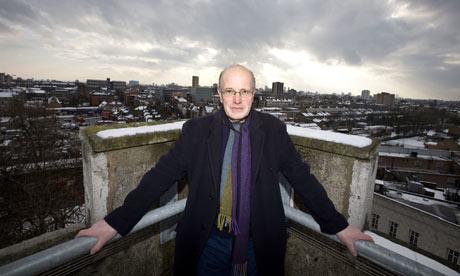
Thursday 4th March, 6pm
The Boardroom, University of Westminster, 309 Regent Street, W1B 2UW
In the first of a new series of talks at Westminster entitled 21st Century London, exploring the challenges and opportunities the city offers to the contemporary writer, Iain Sinclair will be in conversation with David Cunningham, Deputy Director of the IMCC. Future speakers will be Toby Litt (March 11), Diran Adebayo (March 18) and visiting research fellow at the Institute Rachel Lichtenstein (April 22).
For more information, please email Monica Germana at m.germana@westminster.ac.uk. Events are free of charge, but booking is essential: please email Sharon Sinclair at sinclas@wmin.ac.uk to book a place.
Tagged as Literature, London, Sinclair, Urban
Milton, Life, Heresy
Wednesday 24th February, 1.15-2.30pm
Room 106, University of Westminster, 32-38 Wells Street, W1T 3UW
Nigel Mapp (University of Tampere, Finland)
‘Milton, Life, Heresy’
Free to all.
The Portrait and the Novel

Wednesday 24th February, 4.15pm
Room 106, University of Westminster, 32-38 Wells Street, W1T 3UW
Joe Bray (University of Sheffield)
‘Conceptual Metaphor and the Language of the Early Nineteenth-Century Portrait’
Hosted by our colleagues in Westminster’s English Language and Linguistics section, Joe Bray examines the meanings generated by frequent references, both literal and metaphorical, to the portrait in the early nineteenth-century novel. As critics have noted, the late eighteenth and early nineteenth-century novel drew on a well-developed cultural understanding of the portrait-novel connection, and this is particularly true of the novels analysed in this paper: Maria Edgeworth’s Belinda (1801) and Jane Austen’s Emma (1816). Each novel is extensively permeated by a metaphor of the countenance, or in some cases the whole body, as a painted portrait. The mapping involved would seem to create a ‘blended space’ which suggests that the emotions on the face can be easily read and understood, and thus that the body serves as a reliable index to ‘character’. Yet the implications of transparency and legibility that the metaphor of the painted countenance evokes are challenged in various ways in each novel.
Free to all.
Tagged as Literature, novel, portrait, visual culture
THE 2010 VISUAL CULTURE STUDIES CONFERENCE
THE 2010 VISUAL CULTURE STUDIES CONFERENCE
To book email info@instituteformodern.co.uk or download the booking form here
Thursday 27 May – Saturday 29 May, 2010
Venue: The Old Cinema, 309 Regent Street, University of Westminster, London
£50/25 concessions, booking essential
Confirmed contributors: Glen Adamson (RCA/V&A); Lisa Cartwright (UC, San Diego); Sarah Chaplin (Greenwich); Will Cobbing (Wimbledon College of Art); David Cunningham (Westminster); Mark Dunhill (Central Saint Martins); Esther Gabara (Duke); Elizabeth Guffey (SUNY, Purchase); Raiford Guins (SUNY, Stony Brook); ); Gary Hall (Coventry); Michael Ann Holly (The Clark Institute); Guy Julier (Leeds Met); Esther Leslie (Birkbeck); Stephen Melville (Ohio State); Nicholas Mirzoeff (NYU); W.J.T. Mitchell (Chicago); Joanne Morra (Central Saint Martins); Keith Moxey (Columbia); Laura Mulvey (Birkbeck); Griselda Pollock (Leeds); Adrian Rifkin (Goldsmiths); Joy Sleeman (Slade); Marquard Smith (Westminster); Penny Spark (Kingston); Marita Sturken (NYU); Divya P. Tolia-Kelly (Durham); Victoria Walsh (Tate Britain); Joanna Zylinska (Goldsmiths)
Tagged as art, visual culture
Visual Culture Studies in Europe: An Update
Friday’s international conference entitled ‘Visual Culture Studies in Europe’, hosted by the Institute, was a huge success. A stella cast of leading academics, curators, and editors from Austria, Spain, Croatia, Norway, Belarus, Italy, England, and France including Iain Chambers, Oliver Grau, and Adrian Rifkin came together to discuss the study of visual culture within the context of European universities, art colleagues, and cultural institutions. The audience, a talkative mix of staff and students from Westminster as well as welcome guests from elsewhere in London, Brighton, and as far away as Lithuania, had a day to remember. The conference speakers, members of the Visual Culture Studies in Europe Network, plan to meet again next year, this time in Barca!
Tagged as education, Europe, visual culture
Veneers of science
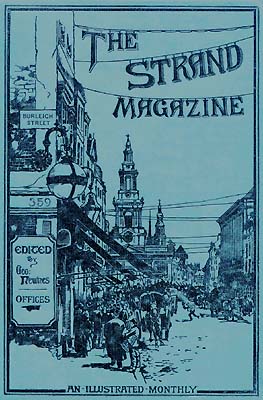
Wednesday 10th February, 1.15-2.30pm
Room 106, University of Westminster, 32-38 Wells Street, W1T 3UW
Jonathan Cranfield (University of Kent)
‘Veneers of Science: Science and Ideology in The Strand Magazine’
Free to all.
Last chance to book: VISUAL CULTURE STUDIES IN EUROPE 5 FEB
Friday 5 February 2010
Room 2.05c, 4-12 Little Titchfield Street, University of Westminster, London W1W 7UW
Cost: £20/£10 concs.
Download a booking form here
10:00 Introduction
10:15-12:30 Session 1: Cartographies of Power
Iain Chambers, University of Naples, Italy
Joachin Barriendos, Curator, Santa Monica Art Centre, Barcelona, and Professor Anna Maria Guasch, University of Barcelona, Spain
Dr Almira Ousmanova, European Humanities University, Belarus/Lithuania
12:30-1:30 Lunch
1:30-3:45: Session 2: Education, Education, Education
Professor Adrian Rifkin, Goldsmiths, University of London, England
Lorraine Audric and Professor Andre Gunthert, Laboratoire d’histoire visuelle contemporaine, L’Ecole des Hautes Etudes en Sciences Sociales
Dr Nina Lager Vestberg, Norwegian, University of Science and Technology Trondheim, Norway
3:45-4:15 Break
4:15-6:30: Session 3: Projects
Dr Oyvind Vagnes, University of Bergen, Norway
Kresimir Purgar, Center for Visual Studies Zagreb, Croatia
Professor Oliver Grau, Danube University, Krems, Austria
The game of war

Tuesday 16th February, 3.00-5.00pm
Westminster Forum, 5th Floor, University of Westminster, 32-38 Wells Street, W1T 3UW
Richard Barbrook (University of Westminster)
‘What’s the actual title? The Game of War: Understanding Situationist’
Hosted by our nextdoor neighbours in the Centre for the Study of Democracy, colleague and fellow traveller Richard Barbrook talks about Guy Debord and Class Wargames. Free to all.
Find out more about Class Wargames here.
Tagged as politics, Situationism, the avant-garde
J.M. Coetzee talk
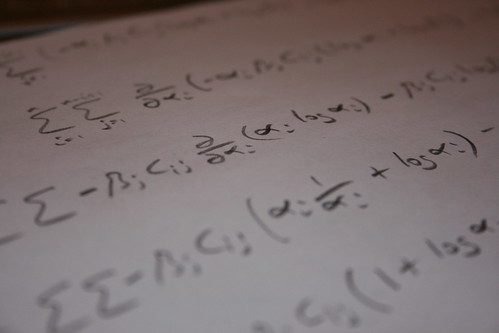
Wednesday 27th January, 1.15-2.30pm
Room 106, University of Westminster, 32-38 Wells Street, W1T 3UW
Peter Johnston (Royal Holloway, University of London)
‘The Mathematical Contexts of J.M. Coetzee’s Early Poetry (1958-1964)’
Free to all.
Visual Culture Studies in Europe Programme Announced

Friday 5 February 2010
Room 2.05c, 4-12 Little Titchfield Street, University of Westminster, London W1W 7UW
Cost: £20/£10 concs.
Download a booking form here
10:00 Introduction
10:15-12:30 Session 1: Cartographies of Power
Iain Chambers, University of Naples, Italy
Joachin Barriendos, Curator, Santa Monica Art Centre, Barcelona, and Professor Anna Maria Guasch, University of Barcelona, Spain
Dr Almira Ousmanova, European Humanities University, Belarus/Lithuania
12:30-1:30 Lunch
1:30-3:45: Session 2: Education, Education, Education
Dr Joanne Morra, Central Saint Martins, University of the Arts London, England
Lorraine Audric and Professor Andre Gunthert, Laboratoire d’histoire visuelle contemporaine, L’Ecole des Hautes Etudes en Sciences Sociales
Dr Nina Lager Vestberg, Norwegian, University of Science and Technology Trondheim, Norway
3:45-4:15 Break
4:15-6:30: Session 3: Projects
Dr Oyvind Vagnes, University of Bergen, Norway
Kresimir Purgar, Center for Visual Studies Zagreb, Croatia
Professor Oliver Grau, Danube University, Krems, Austria
Public Lecture: Toby Miller
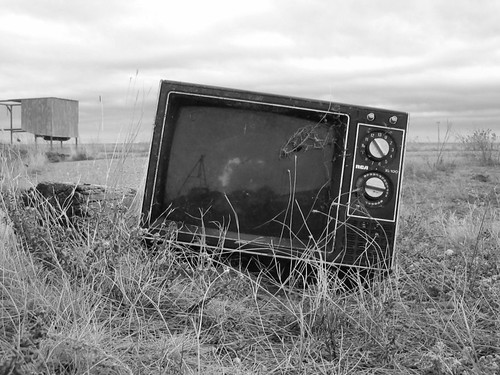
Wednesday January 13th 2010, 5.00pm
Cayley Room (room 152), University of Westminster, 309 Regent Street
Professor Toby Miller (University of California, Riverside)
“Cultural Policy Redux”
Toby Miller is editor of the journal Television & New Media, and author of many books including Spyscreen (Oxford University Press), Television (Routledge), Television Studies (BFI), Popular Culture and Everyday Life (Sage), Technologies of Truth (University of Minnesota Press), The Avengers (BFI), and The Well Tempered Citizen (The Johns Hopkins University Press).
Tagged as education, television, Theory, visual culture

